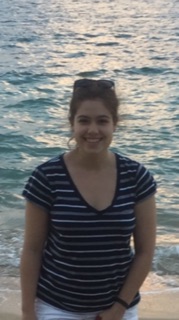About Me
I studied applied math and engineering at Hawaii Pacific University in Honolulu before recently transferring to the University of Washington engineering program as a junior. I am very interested in accessibility research and I want to work towards decreasing barriers that keep individual’s from achieving their goals.
About My Mentors
Richard E. Ladner, Professor Emeritus, in the Paul G. Allen School of Computer Science & Engineering has been on faculty at the University of Washington since 1971. He obtained his undergraduate degree at St Mary’s College of California in 1965 and went on to receive his Ph.D in mathematics at the University of California, Berkeley in 1971. He has received numerous awards for his research and has been working in accessible computing for over 30 years. He is the principal investigator for AccessComputing Alliance and led the Summer Academy for Advancing Deaf and Hard of Hearing in Computing between 2007 and 2013. Some of his awards include the Harrold and Notkin Research and Graduate Mentoring Award (2019), the Strache Leadership Award from the Center on Disabilities at California State University, Northridge (2018) and the SIGACCESS Award for Outstanding Contributions to Computing and Accessibility (2016). He continues to make significant contributions to accessibility research.
Danielle Bragg has her undergraduate degree in Applied Mathematics from Harvard and recently completed her PhD in computer science at the University of Washington, advised by Richard Ladner. She is now working as a senior researcher at Microsoft Research, New England. Using existing communication infrastructures, Danielle works on creating systems that are accessible to those who use sign language or have low vision. Her research has included utilizing smartfonts/livefonts, a proposed first animated ASL character system prototype, creation of ASL search and ASL flash. In 2019, she was the Innovation Award Winner at the Microsoft Ability Summit and in 2018, she was awarded 1st place at the New England Machine Learning Accessibility Hackathon. She also received the National Center for Women and Information Technology (NCWIT) Collegiate award in 2017.
About My Project
My project will be working on an animated character system for American Sign Language based on si5i [1]. I will be designing and building an app for designing these characters and how they work, including incorporation of location, facial expression, hand shape, orientation. Unlike si5s, motion will be indicated by animation rather than symbols [2]. The research problem being investigated will see what are the best ways the app can be designed to be most useful.
[1] RA Augustus, E Ritchie, and S Stecker. 2013. The Official American Sign Language Writing Textbook. ASLized (2013).
[2] Danielle Bragg, Raja Kushalnagar, and Richard Ladner. 2018. Designing an Animated Character System for American Sign Language. In Proceedings of the 20th International ACM SIGACCESS Conference on Computers and Accessibility (ASSETS ’18). Association for Computing Machinery, New York, NY, USA, 282–294.
